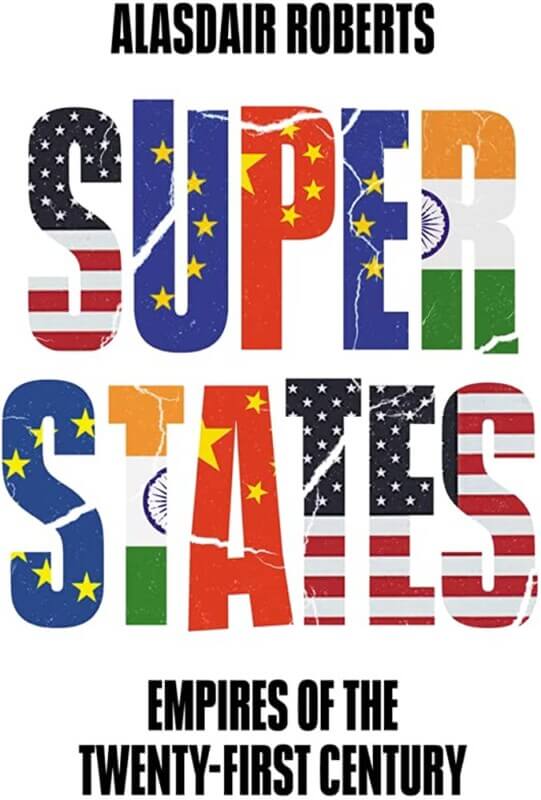R
eports about the death of the state amongst international relations scholars seem premature just yet. In this century, the world will conduct an extraordinary experiment in government. By 2050, forty percent of the planet’s population will live in just four places: India, China, the European Union, and the United States. These are superstates: polities that are distinguished from normal countries by expansiveness, population, diversity, and complexity.
Modern statecraft has attempted to adapt to the challenges of globalization, interdependency, and population increase, bringing piling responsibilities to the states. How can superstates manage the burden of their growing scale? Can such states be effectively governed at all? Looking at other model modern states offers only an incomplete picture; however, while there is not much experience to be drawn from today, empires may offer a guide.
Alasdair Roberts, professor of public policy at the University of Massachusetts Amherst, likens these superstates to the empires of the past. After all, it was the age of empires that gave way to the age of states, and later the hybrid polity superstates. In the coming decades, the least populous superstate, the U.S., will contain as many people as the vast British Empire did at its peak in 1914.
Roberts first attempts to decipher the nature of this ongoing experimentin light of new dilemmas of governance. He argues that, for the most part, superstates wrestle with the same problems of leadership, control, and creed that plagued empires for centuries. Yet, there are no simple solutions.
Could superstates be more durable? What are the pros and cons of a superstate in comparison to an empire? A postulate of empires is the assumption of their eventual death. Size and complexity led to fragility, and imperial rulers improvised constantly to put off the day of reckoning—leaders of superstates are doing the same today.
However, superstates now differ from traditional empires in the responsibilities that they bear, and most importantly in the obligation to improve life for ordinary citizens. They pursue radically different strategies for governing at scale that have profound implications for democracy and human rights. While technology provides more ease to superstates for surveillance and many other tasks, their populations are more restless and demanding, they need to govern more intensively and provide more services.
Roberts takes the reader through each superstate one by one to understand their unique challenges and complementing strategies, and reveals common themes amongst these giants in the process. He, then, takes the COVID-19 pandemic as a case study to analyze how these superstates reacted to a common problem in a different way and how they bared during a shock at the global level.
How should superstates be governed? What must their leaders do to hold these immense polities together? How can these superstates withstand the extraordinary strains and shocks of the contemporary world? If they survive, will they thrive? Superstates: Empires of the Twenty-First Century attempts to answer these and other questions by looking into history for ways to govern these sprawling and diverse polities.
With a groundbreaking twist in thinking about the art and methods of statecraft, Roberts considers the decisions leaders must make to devise and redevise strategies for governance at such a grand scale. Pragmatism, a little bit of reservation, and sometimes unorthodox policies may be necessary.
Alasdair Roberts, Superstates: Empires of the Twenty-First Century (Polity Press, 2022) ISBN: 978-1-509-54449-3, 224 pages
Recommended





